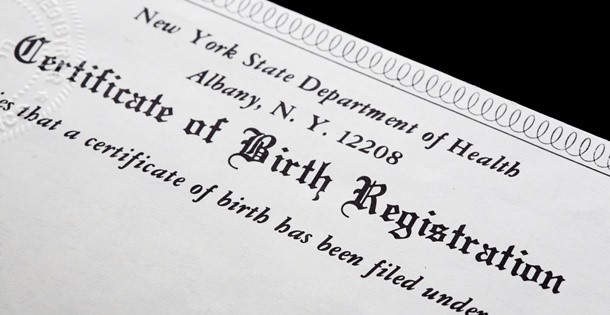Steve Weisman is a lawyer, college professor, author, and one of the country’s leading experts in cybersecurity, identity theft, and scams. See Steve’s other Con Watch articles.
Having a certified copy of your birth certificate is important if you are applying for a passport, applying for public benefits, enrolling in a school, enlisting in the military service, claiming a pension or insurance benefit, or getting a driver’s license. Often people have misplaced or lost the original certified copies of their birth certificates and need a new certified copy. As with most tasks today, the first place many people turn to is Google or another search engine. This will bring up a long list of companies offering to get your birth certificate on your behalf from your birth state’s Bureau of Vital Statistics.
Simple and easy as can be, and what possibly could go wrong?
For starters, not all companies that offer this service are legitimate. You might complete their online form and provide your credit card information for payment only to have that information turned over to an identity thief who runs up charges on your credit card. And, of course, you never get your birth certificate. While it is a simple matter to have the fraudulent charges removed, it will be necessary for you to obtain a new credit card number, which can be an inconvenience, particularly if you have regular charges made to your credit card. If you used a debit card, you even run the risk of having the bank account your debit card is tied to emptied if you do not report the fraud immediately. The laws that protect you from fraudulent debit card use are not as strong as those that protect you from misuse of your credit card. Never use your debit card for anything other than an ATM card.
You may wonder how scammers are able to get their websites listed high in internet search results. When ranking websites for listing in a search engine search, neither Google, Bing, nor any of the other search engines inquire as to whether or not the particular website is legitimate or a scam. Instead, the ranking is done by algorithms that analyze many factors. Anyone who is adept at manipulating the algorithms can improve their ranking. Scammers will also pay the search engines for an ad that will appear at the top of the page.
But it gets worse.
Even if you manage to find a service that will actually order your birth certificate for you, they might charge you five times the amount you would pay on your own. This is particularly outrageous when you consider how easy and cheap it is to order a copy of your birth certificate on your own directly from your birth state’s Bureau of Vital Records.
The National Center for Health Statistics provides links to the Bureau of Vital Statistics for all the states and U.S. territories, along with instructions for ordering your birth certificate on your own.
There is a similar scam related to obtaining copies of the deed to your home or information about abandoned property. The scam usually begins with a call, email, or letter informing you of the importance of having a copy of the deed, and that the company contacting you can obtain a certified copy of your deed for as “little” as $90.
Having your original deed or a certified copy of it is not very important once your deed has been recorded in your local Registry of Deeds (although it is a good document to have with your personal records). Obtaining a copy of your deed on your own from your local Registry of Deeds is simple and rarely costs more than a few dollars. In May 2018, Ohio passed a law requiring specific disclosures to consumers be made when a fee is requested to obtain a copy of a deed on your behalf. The disclosure must include the actual cost charged by the Registry of Deeds and also prohibits charging a fee of more than four times that cost. However, other states have not yet passed similar laws so you must be alert to this legal scam of overcharging you for a copy of your deed.
Finally, you might receive emails or letters informing you that billions of dollars of unclaimed or abandoned money is being held by various states, and some of that bounty has your name on it. For a fee, the person or company contacting you will help you find that property and claim it for you.
It’s true that various state agencies are holding more than $24 billion of unclaimed money: State laws require financial institutions, such as banks, to turn over money from inactive accounts to the state. Among the assets held by these state agencies are savings and checking accounts, stocks, uncashed dividend checks, certificates of deposit, and utility security deposits. However, you don’t need the help of these companies to retrieve your unclaimed assets. You can easily find out if money or other assets of yours are being held and then claim those assets on your own. The best place to start is at the website of the National Association of Unclaimed Property Administrators. Here you will find links to the abandoned property agencies in your state, where you can determine if you are owed anything and, if so, start the simple claim process.
As with so many things, often the best place to find a helping hand is at the end of your own arm.
Become a Saturday Evening Post member and enjoy unlimited access. Subscribe now



